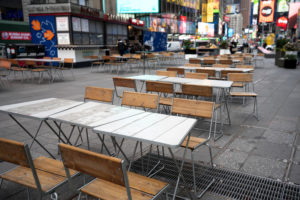
You can’t rebuild the world’s biggest economy with printed money. Production and business are what really make an economy strong, not the number of dollars in circulation.
John Cogan and John Taylor explain in the Wall Street Journal that these sorts of payments don’t do anything. They write:
President-elect Biden is promising another round of federal spending to “stimulate” the economy. Jumping on the bandwagon for $2,000 checks may be only the beginning. But history shows such spending does nothing to stimulate the economy. In the end, it only adds to the federal debt.
Since the mid-1970s, one-time cash payments to individuals to stimulate economic growth have been tried on at least five separate occasions. Presidents Gerald Ford and Jimmy Carter promised that their stimulus checks would restore economic growth by inducing higher consumption. Yet in both instances the payments failed to deliver the promised results. Their impact on economic output was at best negligible and only temporary.
More recent attempts by Presidents George W. Bush and Barack Obama were similar flops. The one-time cash payments under Mr. Bush in early 2008 had no discernible impact on the economy. Having seemingly learned nothing from this experience, Mr. Obama proposed the same remedy in 2009 as part of a larger economic stimulus plan. His temporary and targeted cash assistance had, if anything, only a negligible near-term impact. Over the longer run, the economy experienced a remarkably anemic recovery.
These failures are consistent with the permanent-income and life-cycle theories of individual consumption behavior. Both theories suggest that individuals’ consumption is determined primarily by their income over the long term. Hence, a one-time cash assistance grant doesn’t boost consumption. As we wrote on these pages about such programs in 2010, theory and evidence shows that “they did not work then and they are not working now.”
At the beginning of the COVID-19 pandemic, blue state governors went wild, shutting down any non-essential business that might result in the virus spreading. The problem is, when it’s your business, it’s always essential. People need to eat, save, and live. The types of small businesses most affected were those that drive much of America’s job creation.
Nowhere in America felt such frustration as Gov. Andrew Cuomo’s New York City, where the same businesses shut down by the governor and Mayor Bill De Blasio, also saw their best customers flee the city en masse, taking their money with them.
Now Cuomo, with visions of a big Joe Biden bailout in his future, is suggesting that in fact shutdowns do hurt business, and that they can’t last forever. This turnabout has both enraged, and confused the few remaining New Yorkers trying to do business in the state.
Biden and Cuomo hope to calm them down with $2,000 checks. How many businesses in New York City can even pay the rent for a month with $2,000?
Business owners don’t want checks, they want to do business. They have been blocked by arbitrary and illogical rules, and now they’re angry.
As they try to parse Cuomo’s position, their anger is only increasing. Fox News‘ Caleb Parke reports:
New York Gov. Andrew Cuomo’s flip-flop on coronavirus lockdowns and regulations “make it impossible for us to operate,” a New York City bar owner told “America’s Newsroom” Thursday.
As part of his annual State of the State address, the Democratic governor raised eyebrows on Monday for denouncing the economic restrictions that his own administration put into place in response to the coronavirus outbreak.
“We simply cannot stay closed until the vaccine hits critical mass,” Cuomo said. “The cost is too high. We will have nothing left to open. We must reopen the economy, but we must do it smartly and safely.”
Erin Bellard, owner of E’s Bar restaurant on the Upper West Side, isn’t satisfied with the governor’s response.
“His plan seems arbitrary and capricious at this point,” Bellard told co-host Sandra Smith. “It’s one thing to think about getting a rapid test before you go to a sporting event because you get that ticket three weeks in advance, and something completely different to think about getting a test before you meet your friend for a burger at your local pub.”
Action Line: Look around you. Are your politicians treating like a customer, or an ATM? Look for a better America. We’re in this together. Let’s keep in touch.



